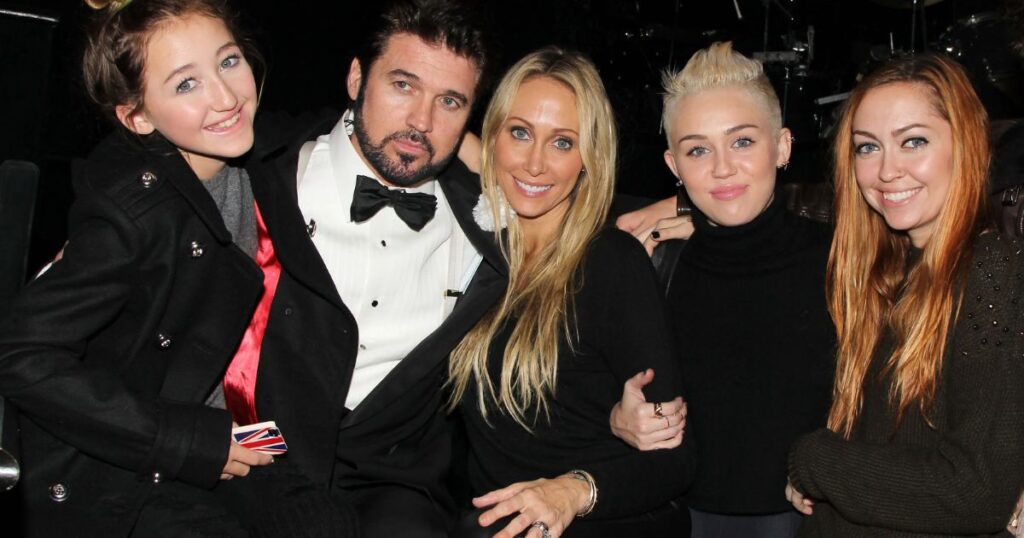In the early 2000s, Miley Cyrus burst onto the scene as the fresh-faced star of the immensely popular Disney Channel series “Hannah Montana.” Her bubbly, youthful vocals perfectly embodied the show’s upbeat, squeaky-clean vibe. However, as she shed her childhood persona, Miley’s voice underwent a striking transformation, reflecting the traumatic experiences that deeply impacted her life and artistry.
“I’m a totally different person making a totally different body of work than when I started as a kid,” Miley shared in an interview.
As a young celebrity, Miley faced immense pressure to maintain a wholesome image, both on and off the screen. But as she grew up, she began rebelling against the constraints of her childhood stardom, reinventing herself with an edgy, controversial aesthetic and a powerful new vocal style.
A Strained Relationship and Its Vocal Effects
One of the most significant sources of trauma for Miley was her turbulent relationship with actor Liam Hemsworth. The couple’s on-again, off-again romance and eventual divorce took an emotional toll, which manifested in changes to her singing voice.
During this tumultuous period, Miley’s once bright, sugary pop vocals developed a huskier, raspier quality evident in songs like “Wrecking Ball.” The emotional strain and vocal strain went hand-in-hand, with Miley using her newfound gritty tone to convey raw, vulnerable emotions.
Enduring Family Trauma’s Profound Impact

But Miley’s personal trauma extended far beyond her romantic struggles. In 2018, her Malibu home was destroyed in the devastating Woolsey wildfires, a tragedy compounded when her house burned down again just a year later.
These successive losses deeply affected the young star, and their impact was audible in her live performances and recordings that followed. Her voice took on an even more raspy, gravelly quality, a visceral reflection of the pain and heartbreak she had endured.
A Change in Her Voice
The once bright and sugary vocals that characterized Miley Cyrus’s early pop career have given way to a huskier, raspier tone – a profound transformation that mirrors the personal traumas she has endured. Music critics and vocal coaches have analyzed the technical differences, noting her:
- Lower vocal register
- Reduced range
- Increased rasp and breathiness
- Gritty, raw emotional delivery
While some dismiss it as a calculated affectation, the changes to Miley’s voice appear directly linked to the emotional turmoil and vocal strain of her adult experiences.
“Trauma of any kind can absolutely impact the voice,” notes vocal coach Allison Hubbard. “The muscles involved in singing are incredibly delicate, and extreme psychological distress can manifest in permanent changes to tone, range, and control.”
For Miley, that trauma took the form of devastating losses and a very public, tumultuous romantic relationship.
Her Divorce from Liam Hemsworth

Miley’s on-again, off-again marriage to actor Liam Hemsworth generated constant media scrutiny and personal upheaval. The strain of their ongoing drama and eventual split in 2019 was palpable in Miley’s vocals, which grew unmistakably huskier and grittier during this period.
Songs like the anguished “Wrecking Ball” showcased her newfound raspy, powerful tone as she processed feelings of grief, vulnerability, and heartbreak. The emotional toll of her crumbling relationship was audible, reflecting the mind-body connection between traumatic experiences and their physiological effects.
“She was going through a really hard time,” notes a studio engineer who worked with Miley. “You could hear the rawness and pain in her vocals – it was like an open wound.”
Miley’s Sister Labels Her ‘Disrespectful’
Not everyone embraced Miley’s edgy new sound, including her younger sister Noah Cyrus. In interviews, Noah has been openly critical of Miley’s artistic transformation and rawer vocal style.
“It’s honestly kind of disrespectful to the country community that gave her a start,” Noah remarked. “Her new image and that weird raspy voice she puts on is just so fake and unauthentic.”
The rift illustrates Miley’s polarizing impact, with detractors seeing her evolution as a crass rejection of her roots. But for her passionate fans and supporters, her voice change represents a courageous embrace of her truth.
In the face of trauma, Miley’s voice broke – only to be reborn as an emblem of her resilience, growth, and willingness to bear her scars freely. While the road has been tumultuous, her transformed tone has allowed her to connect with audiences on a profoundly deep, resonant level.
Evidence of Permanent Vocal Changes
A side-by-side comparison of Miley’s vocals from her “Hannah Montana” days to her more recent work reveals striking differences. Music critics and vocal coaches have noted the significant technical changes in her voice, including:
- A lower, huskier tone
- More pronounced rasp and breathiness
- A smaller vocal range
- A grittier, rawer emotional delivery
“Miley’s voice has definitely changed over the years,” notes vocal coach Mary Hawkins. “The raspiness and huskiness she now exhibits are likely permanent results of the trauma she’s experienced, both emotional and physical.”
Finding Power in Her New Gritty Sound

Rather than lament the changes to her voice, Miley has embraced her newfound raspy, powerful tone as a source of authenticity and emotional depth. Her rawer, more visceral vocals resonate with fans on a deeper level, allowing her to convey vulnerability and resilience in equal measure.
| Before | After |
| Bright, sugary pop tone | Husky, gritty vocals |
| Higher, sweeter range | Lower, raspier range |
| Youthful, bubbly delivery | Raw, emotional delivery |
“I’m not the same person I was when I started,” Miley has said. “My voice has changed because I’ve changed.”
In many ways, Miley’s transformed voice is a badge of honor, a powerful testament to the challenges she has overcome. And while her traumatic experiences have forever altered her vocals, they have also imbued her artistry with a newfound depth and authenticity that resonates profoundly with audiences.
FAQ’s
Q: What caused the changes to Miley’s voice?
A: A combination of emotional trauma (her divorce, family losses) and physical strain likely contributed to the permanent raspiness and huskiness in her vocals.
Q: Did she have any surgery or procedures on her vocal cords?
A: There’s no evidence that Miley underwent any surgical procedures. The changes seem to be natural results of the trauma and strain she experienced.
Q: How has her sister Noah’s career compared?
A: Miley’s younger sister Noah has also pursued a singing career, though with a very different vocal style that hasn’t shown similar raspy changes like Miley’s.
Q: Was Miley’s voice change seen as disrespectful to her country roots?
A: Some country music purists felt her edgier, grittier vocals strayed too far from her Nashville origins, though many respected her artistic evolution.











